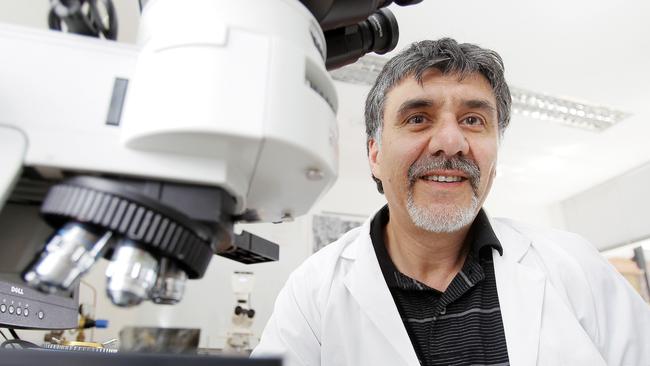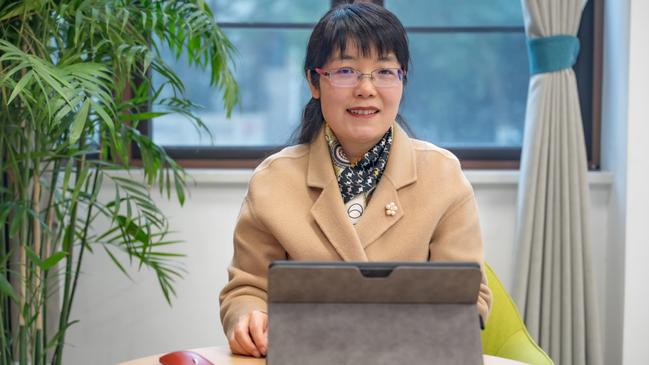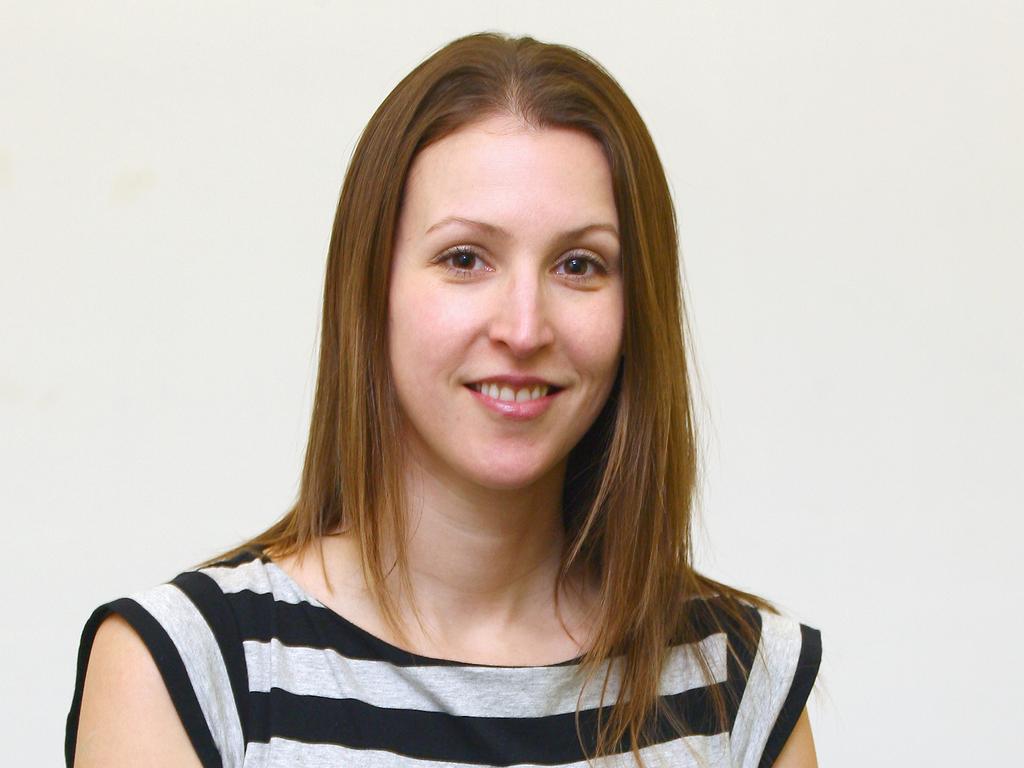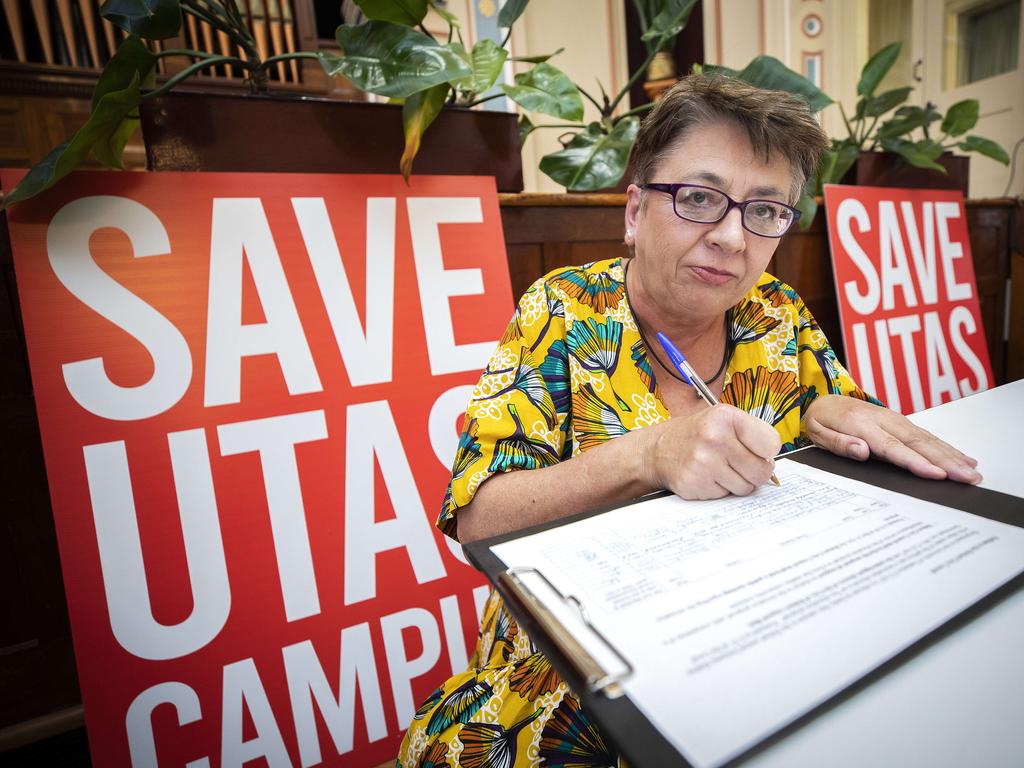Russian foreign interference claim ‘UTAS bullying’: professor
A respected Australian geologist has been accused of exposing the University of Tasmania to ‘high risk’ of Russian ‘interference’ – a claim he dismisses as management ‘bullying’.

A respected Australian geologist has been accused of exposing the University of Tasmania to “high risk” of Russian “interference” – a claim he dismisses as “laughable” and part of relentless management “bullying”.
Russian-born Vadim Kamenetsky has worked at UTAS since 1995, winning research accolades, but in recent years has clashed repeatedly with management.
This has included a social media post accusing Vice-Chancellor Rufus Black of subscribing to Joseph Stalin’s motto: “When there’s a person, there’s a problem – when there’s no person, there’s no problem.”
UTAS management has responded with disciplinary actions that have so far failed to stick but which have resulted in drawn-out processes that have seriously impacted Professor Kamenetsky’s mental health and work.
The third set of allegations thrown at Professor Kamenetsky in the past two years asserts he has exposed UTAS to a “foreign interference” risk.
A “preliminary assessment” alleges research he conducted connected with the Russian Science Foundation or Russian Academy of Sciences was with “high-risk collaborative partners”.
“No other Australian universities currently … (have) a collaborative arrangement with them,” it says. “As the university is connected to these institutions via the research outputs, additional foreign interference requirements under the Australian government Foreign Arrangement Scheme would be required.”
It further accuses Professor Kamenetsky, who says he has effectively been suspended for the past two years, of “receiving funds” from the Russian institutes without declaring it or seeking approval.
Professor Kamenetsky rejects the latest allegations as ludicrous and part of a long campaign to “bully” him out of his job.
“UTAS management is spurious on every level,” Professor Kamenetsky told The Australian. “UTAS is well aware of me not having grants in Russia or me working there while I was on leave and/or suspended from work. Nevertheless, UTAS alleged me in ‘crimes’ that I never performed. It is a clear case of bullying, by which UTAS hopes to shatter my mental state and force me to resign.
“I had only one grant in Russia from 2016-2020 that I lawfully reported to UTAS and even transferred some funds to UTAS to pay for analytical services. All my other work (with Russian institutions) was done either for free or using … other people’s grants.”
Some academics see the claim of exposing UTAS to potential foreign interference as ironic, given recent concerns about management’s own close collaborations with bodies linked to the Chinese Communist Party.
Westa College, a joint venture between UTAS, the University of Western Australia and China’s Southwest University, has as its dean Zhao Yufang, a deputy to the National People’s Congress, China’s highest organ of state power.

Management’s latest disciplinary process is the third against Professor Kamenetsky since late 2021. The first, related to his Stalin comment, appears to have been discontinued despite his own going suspension. In 2023, management asserted new “misconduct” allegations. These included that he breached a direction not to attend UTAS sites or undertake work pending receipt of report from his psychologist. On October 20, the allegations were dismissed by an independent disciplinary review, which found UTAS’s intention to sack Professor Kamenetsky over the claims was “unlawful” and “unwarranted”.
It found the direction he obtain a psychologist’s report was similarly “not lawful”, while the reasonableness of banning him from UTAS sites and from working was “debatable”, and lacked concern for a longstanding employee, who at the time was on leave caring for his cancer-stricken elderly mother.
It recommended that, given the “broken … beyond repair” employment relationship, management negotiate an agreed separation “in a manner that recognises Professor Kamenetsky’s long and distinguished service”.
UTAS has so far failed to do so, or even to drop the allegations against Professor Kamenetsky, who is the latest in a series of current or former UTAS staff to allege bullying by management.
Kristen Derbyshire, UTAS chief people officer, declined to comment on the treatment of Professor Kamenetsky, citing the confidentiality of “employment matters”. “We are a large organisation and on occasion we have to navigate the complexity of staff matters involving employees’ safety, behaviour, performance, and complaints,” she said.
Professor Kamenetsky said his situation was indicative of the takeover of universities by managers, at the expense of academic freedom. “It is happening in all Australian universities, where academic leaders are substituted by ruthless managers, who do not care about education and research,” he said. “Universities are becoming milking cows to a large group of people, from chancellors and vice-chancellors to small-time crooks in human resources.”








To join the conversation, please log in. Don't have an account? Register
Join the conversation, you are commenting as Logout